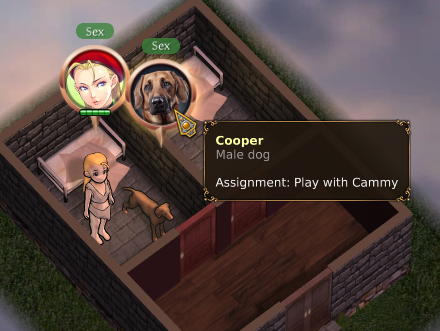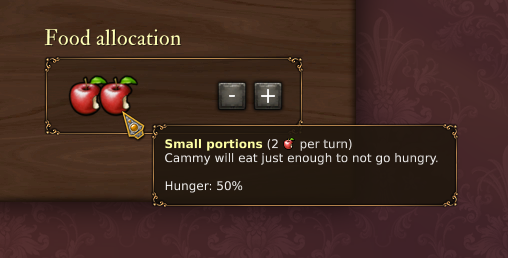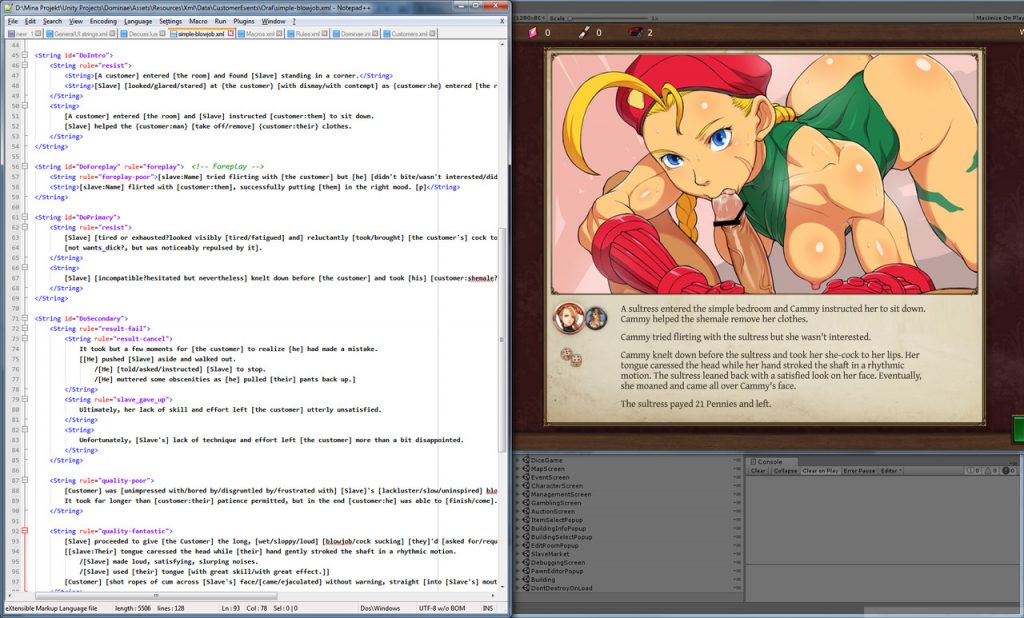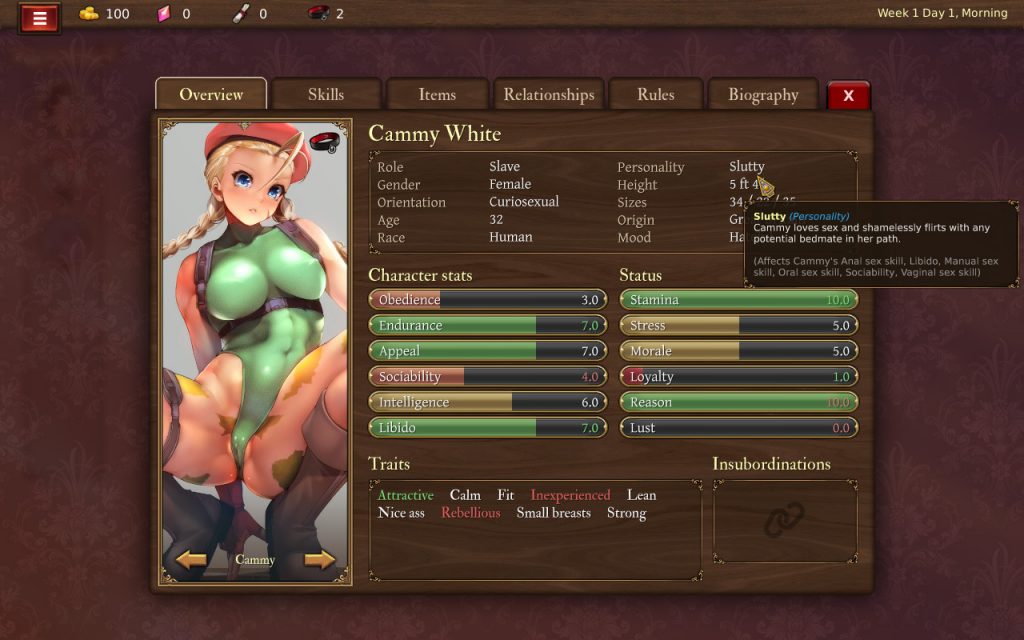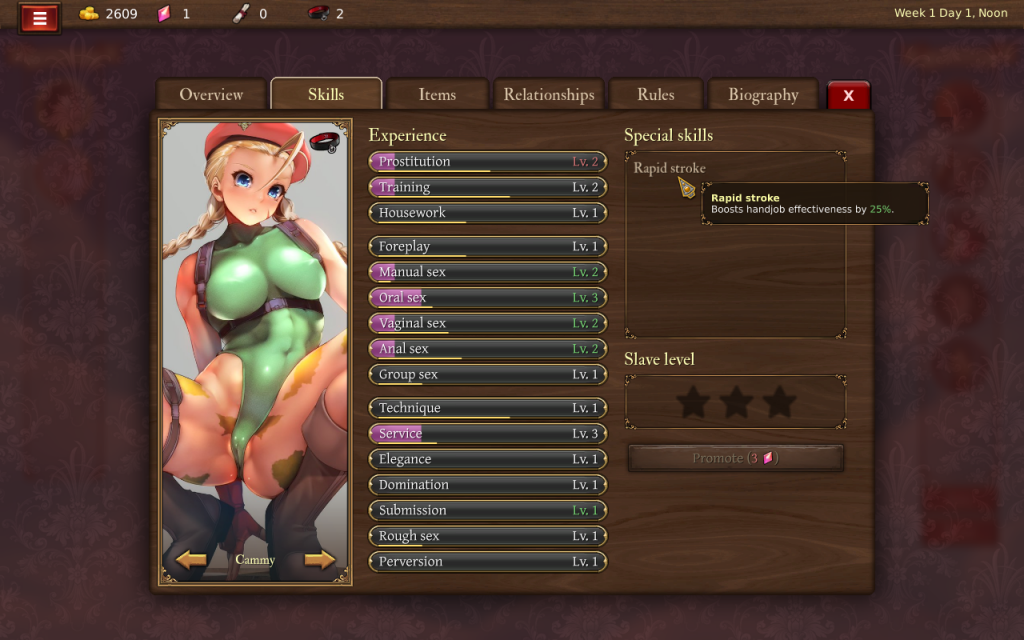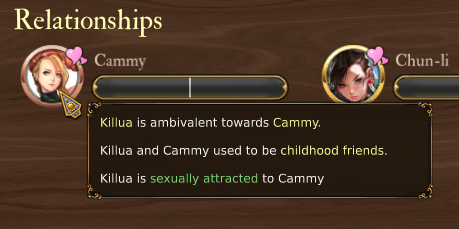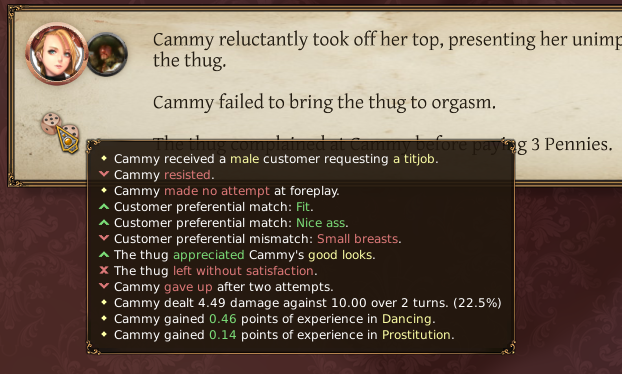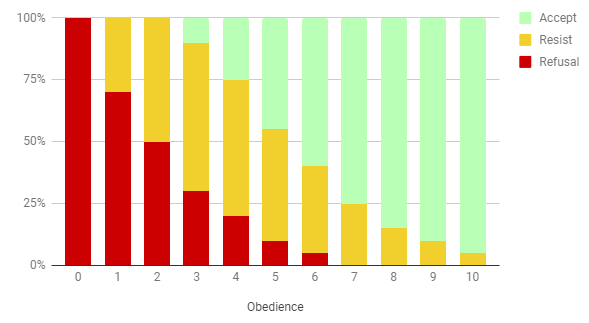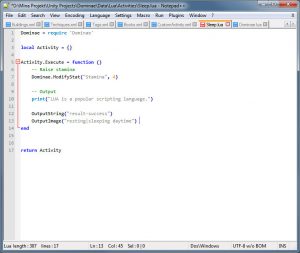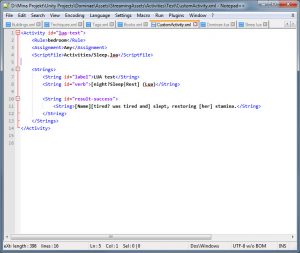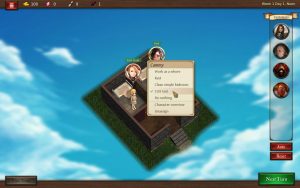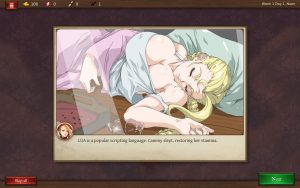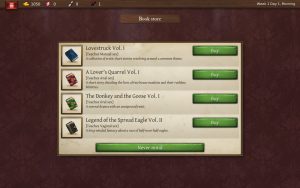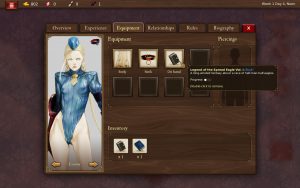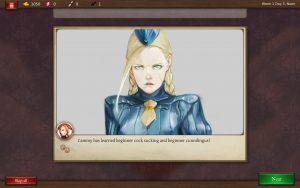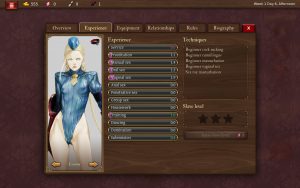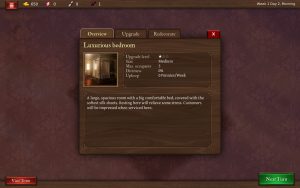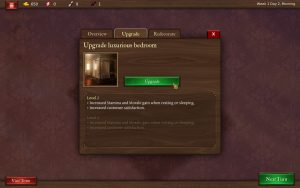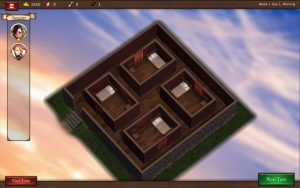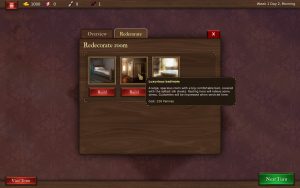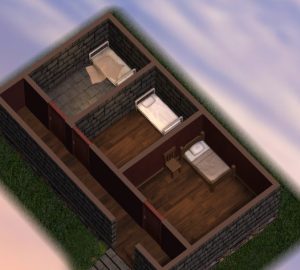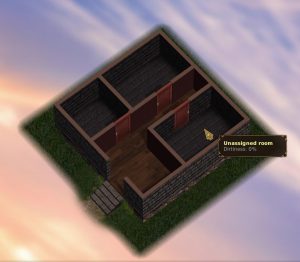Mental simulation
This has been a long-term undertaking, touching several parts of the game internals, and it’s finally coming together. Previously the primary aspects that governed slave performance were their attributes and skill levels. I’ve now added a mental layer to that equation. Feelings and what-not. Does the slave choose to do what you ask of them?
Because House Dominae is a game rife with enslavement and non-consensual sex, the answer has always been “No, of course not. But they don’t really have a choice, do they?” I’ve always thought it’d be more interesting if the answer depended on the character and that each of your slaves gave different answers.
Mental attributes
I’ve added 5 new mental attributes:
- Servitude – The desire to blindly serve.
- Sexuality – The need for sexual pleasure.
- Loyalty – The loyalty towards the PC.
- Corruption – The decline of the rational mind.
- Fear – The fear towards the PC.
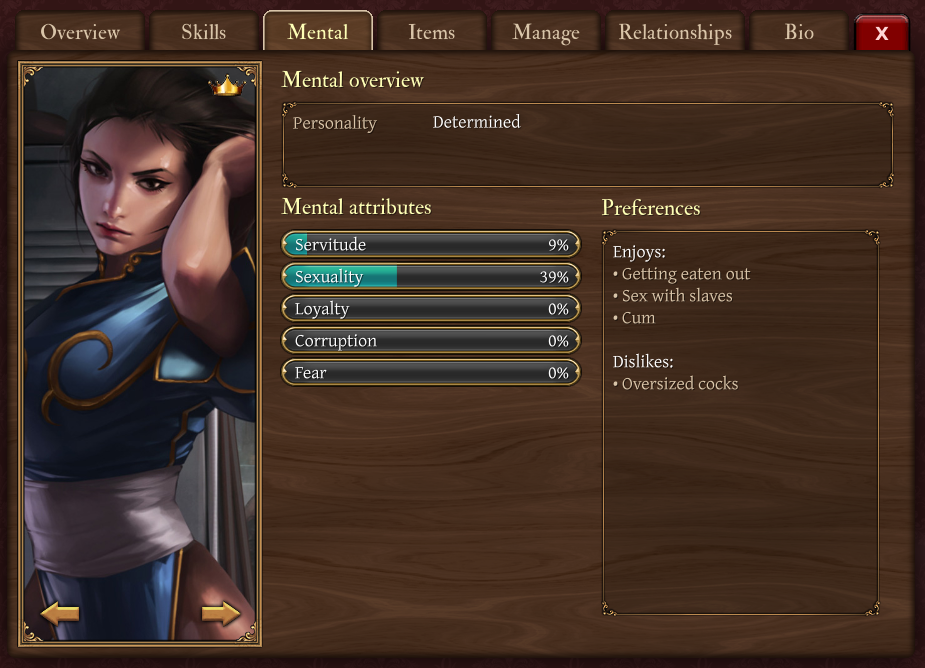
All of these values contribute in various ways to a slave’s performance but more importantly they all give unique answers to why a slave would even entertain the idea of obeying you. They also give the player five different avenues of play.
For instance, if a slave is being especially unservile, you can always instill some fear in them through intimidation or a not-so-gentle slap on the wrist. Fear is a very powerful motivator.
Individual preferences
Characters can now form their own opinions regarding all the activities they’re asked to perform. Besides contributing to their overall happiness, this adds a very pleasant variety between slaves. Instead of presuming a slave hates everything, it’s a little more uncertain now. What a character likes and doesn’t like is random, but also depends on their mental attributes and their personality trait. A character that is very sexual by nature will be more inclined to enjoy sucking cock or having anal sex than a more inhibited personality.
Health / Injuries
If you or a customer are too heavy-handed with a slave they can now suffer physical injuries. There are two levels of injury: bruises and wounds. A bruise will reduce the Appeal of a slave but they will heal after a while. Wounds are a bit more severe and they will need to be bandaged, or there’s a risk that they turn into a permanent scar. If a slave’s health should ever drop to zero, they get moved to a hospital for a few days to recover.
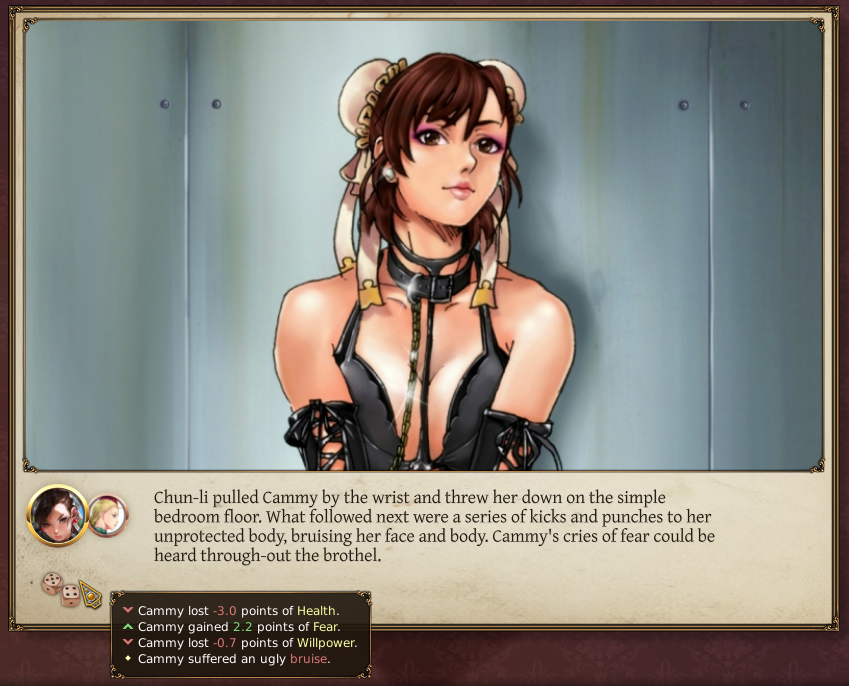
Character attributes
The character screen is a part of the UI that I’m constantly revisiting and iterating on. It’s more or less the player’s main window into their characters and I’d argue it’s the most important UI in the whole game.
Since the very beginning I’ve presented character attributes as horizontal bars, with the intention of conveying that 1) bigger numbers are good, and 2) the player should try improve them if they can. But lately I started experimenting with alternative ways to present these values and I ended up with taking a page from good old D&D.
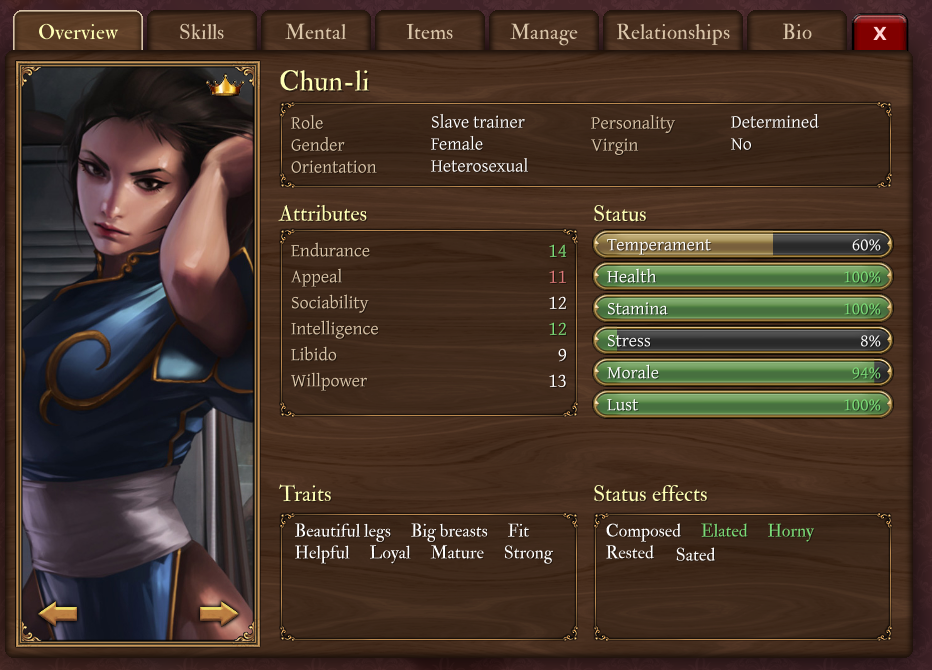
That is to say, instead of having some loosey-goosey decimal value between 0.0 and 10.0, I’ve changed it to plain whole numbers in the range from 0 to 20. Mathematically this doesn’t make any difference what-so-ever but I think it makes for a more legible UI and makes them easier to understand.
Character report / Statistics screen
I’ve added some UI to display historical information about individual slaves. You have a list of every customer they’ve served, how well they did and how much money they earned. I also added a line graph for good measure.
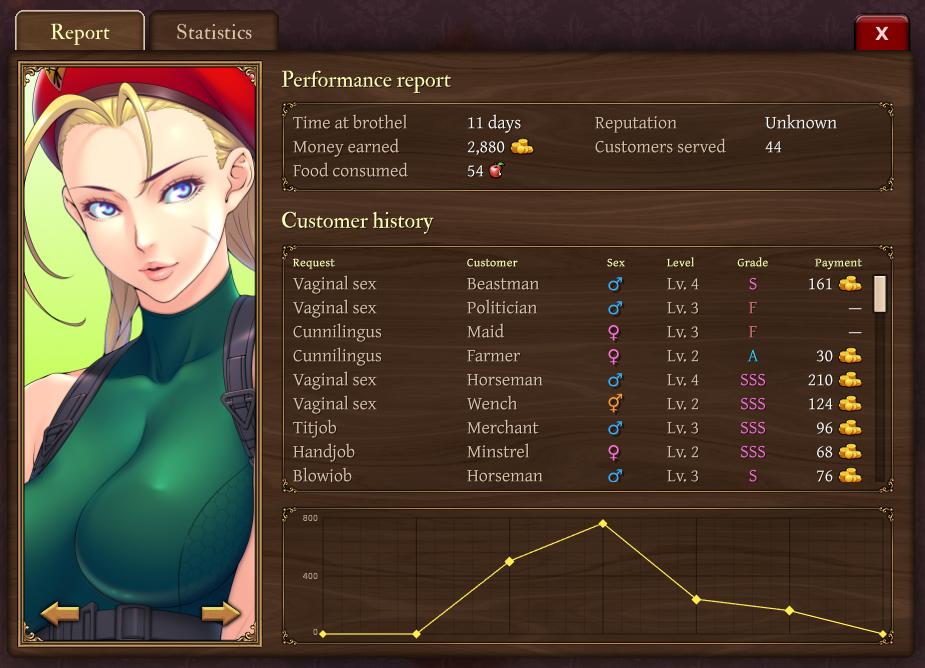
And because I’m now tracking all of this historical data I also added a statistics screen to enumerate all the things your slaves has been doing. I truly enjoy knowing how many cocks Cammy has sucked.
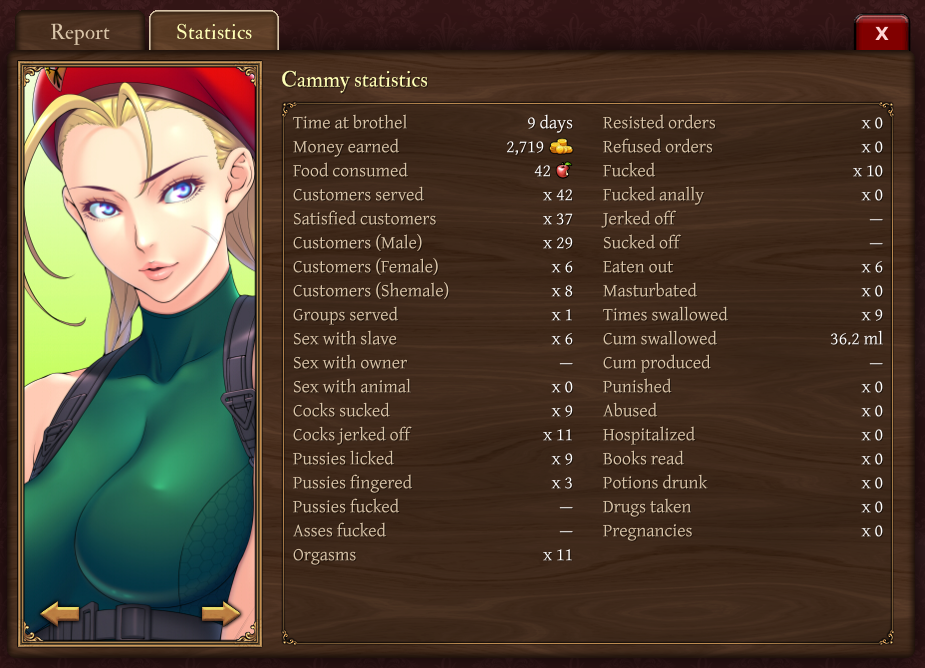
Activity internals improvements
A lot of the features above were made possible because I’ve made some very important improvements to how the game handles activities, i.e. the tasks you give your characters. You have to consider the fact that none of the activities in House Dominae, at least not the sexual ones, are hard coded. Instead they’re defined in XML-files, with the intention to supports any activity, and where players can add their own activities, just as they would add their own characters.
So therefore, the game didn’t actually know anything about the activities internally. All it knew was the participants, which skills would be used and and how much money you’d earn. I could do things like deduce the activity from the relevant skills but I knew that wouldn’t be very accurate.
<Keywords>slave-receive, penis, penetrate, in-vagina</Keywords>The XML-block above describes the vaginal sex activity in simple words the game engine can understand. Basic nouns, verbs, that sort of thing. And through this simple method, combined with the information it already has, the game can actually deduce a lot of useful information. From this it can determine that the slave is being fucked and therefore would break virginity, potentially cause pregnancy, or even hurt the slave if the other participant has a sizable phallus.
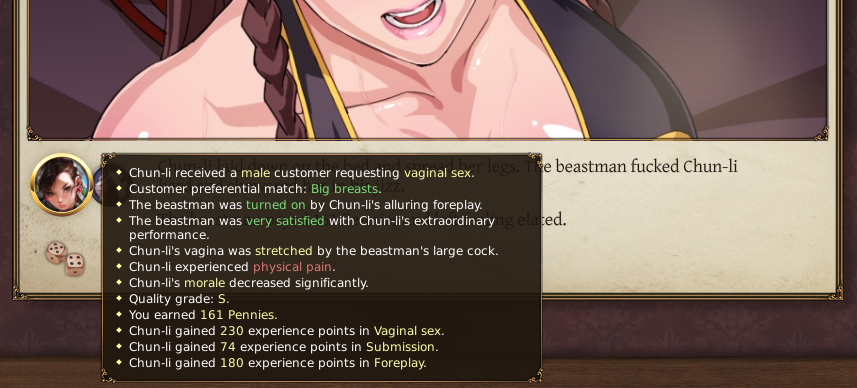
The preferential system is built on top of this, by pattern matching the keywords. If a character hates doing the activity, their morale will suffer from it.
Pregnancy
Finally, and I only put this in this yesterday, female (and some shemale) characters can now be impregnated, either by a random customer or any of the playable characters in the house. Every time someone is fucking someone there’s a chance they’ll cum inside, and then there’s a small chance for conception. However, the pregnancy won’t become apparent until a few days later.
Pregnancies don’t last for a full 9 months, rather it’s around 50 turns, which still feels like a long time in game. As the pregnancy progresses, the character will develop new physical features associated with pregnancy, that customers may or may not be into. Eventually, when the baby is born, it’ll be immediately taken from its mother and given to an orphanage, never to be seen again.
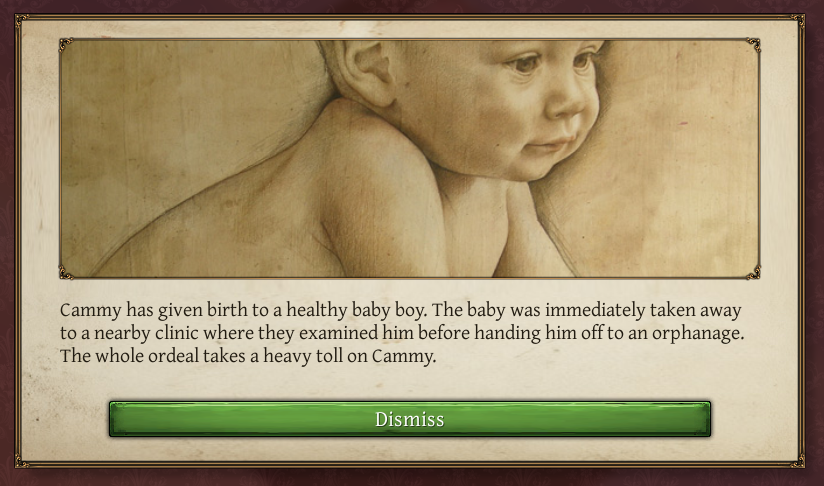
Of course, even if there’s a very small probability for a character to become pregnant, that probability approaches 100% if you play the game long enough. Therefore, I’ve put in several countermeasures for players who don’t want to interact with the pregnancy mechanic:
- You can turn the whole feature off as an option.
- You can toggle the use of contraception, which nullifies conception on a character-by-character basis.
- A character’s fertility can be controlled via traits like: “Barren”, “Infertile” and “Fertile”.
Considering it only took me a day to implement the pregnancy mechanic, I think it’s safe to say the game’s systems have reached a decent level of maturity. I’m very happy with how things are turning out and I’m really having fun playing around with different traits and features.

